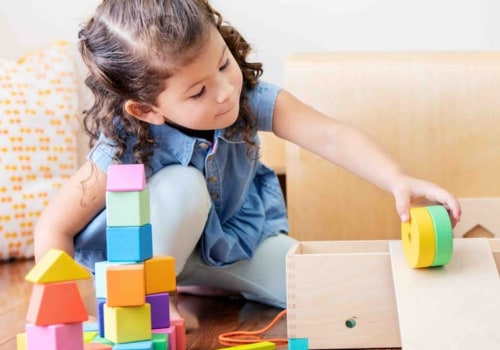As an expert in Montessori education, I have seen firsthand the impact that wooden toys can have on a child's development. When you walk into a Montessori classroom, you'll notice that most of the materials are made of wood. This is not a coincidence, as there is a strong belief in the Montessori philosophy that natural materials offer the best learning experience for children. One of the main reasons for using wooden toys in a Montessori environment is to provide a tactile experience for children.
The use of natural materials such as wood allows children to engage their senses and explore the world around them. This type of hands-on learning is essential for young children as it helps them develop their fine motor skills and hand-eye coordination. In addition to the tactile experience, wooden toys also offer durability and sustainability. Unlike plastic toys that can easily break, wooden toys can withstand years of play and can even be passed down from generation to generation.
This not only teaches children about the importance of taking care of their belongings but also instills a sense of appreciation for natural materials. The Topponcino, a soft and durable crib made of all-natural cotton, is a perfect example of how Montessori toys are designed with sustainability in mind. It provides a safe and comfortable space for children to play under their wooden Montessori games or while feeding. This type of intentional design not only benefits the child but also promotes eco-friendly practices.
In addition to sustainability, wooden toys also offer important lessons about independence and decision-making. In a Montessori environment, children are encouraged to choose their own activities and work at their own pace. By placing wooden toys on accessible shelves or cabinets, children are given the freedom to choose what they want to play with, promoting independence and self-directed learning. Another benefit of using wooden toys is the impact it has on a child's future preferences.
Children who grow up playing with wooden toys are more likely to appreciate and prefer natural objects as they grow older. This is because they have been exposed to the beauty and sustainability of these materials from an early age. Aside from the physical and developmental benefits, wooden toys also offer important lessons on abstract concepts such as motor skills, reasoning, and cognitive development. These toys are designed to be visually appealing, which is an important factor when setting up a Montessori nursery or playroom.
The use of natural materials not only adds to the aesthetic of the space but also promotes a sense of calmness and connection to nature. It's no surprise that there is a common theme in Montessori toys: they're usually made of wood. This intentional choice not only aligns with the Montessori philosophy but also offers numerous benefits for children's development. As an expert in Montessori education, I highly recommend incorporating wooden toys into your child's playtime for a well-rounded and enriching learning experience.



